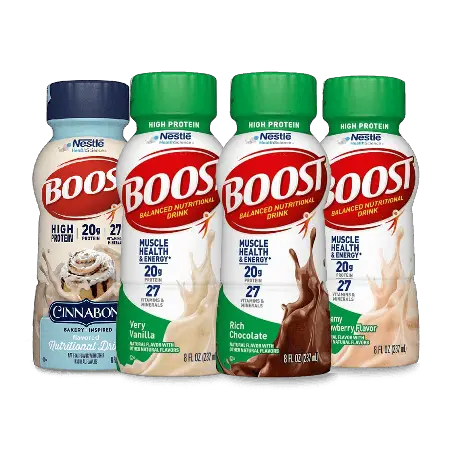In our fast-paced world, nutritional drinks like Boost by Nestle have gained immense popularity as a convenient source of quick nutrition and an instant energy boost.
However, it’s crucial to be aware of the potential dangers of drinking Boost that can accompany their consumption.
In this comprehensive article, I will delve into the potential drawbacks of Boost and provide practical recommendations to help you make informed choices while enjoying the benefits of these popular nutritional drinks.
READ ALSO: Unveiling the Truth About 4 MCT Oil Side Effects: Separating Fact from Fiction
Table of Contents
READ ALSO: 5 Potential Yohimbe Side Effects You Might Suffer
Potential Dangers of Drinking Boost/Vitamin Boost Drink Side Effects #1: Digestive Distress – Balancing Nutrition and Comfort
Boost nutritional drinks are carefully formulated to provide a blend of essential vitamins, minerals, protein, and carbohydrates. However, the high-calorie content and specific ingredients may not agree with everyone’s digestive system, leading to discomfort.
Some individuals may experience bloating, gas, or constipation when introducing Boost into their diet. To mitigate these effects, it’s advisable to start with smaller serving sizes and gradually increase as your body adjusts.
Additionally, prioritizing hydration and incorporating fiber-rich foods, such as fruits, vegetables, and whole grains, can promote healthy digestion and alleviate digestive distress.
By finding the right balance between essential nutrition and digestive comfort, you can optimize the benefits of Boost while minimizing discomfort.
Potential Boost Diabetic Drink Side Effects #2. Allergies and Sensitivities: Stay Aware and Stay Safe
Boost nutritional drinks contain a diverse range of ingredients, including potential allergens like milk or soy.
It is essential to carefully review the product labels to avoid any adverse reactions if you have known allergies or sensitivities.
Allergic responses can manifest as itching, swelling, or difficulty breathing. If you experience any of these symptoms after consuming Boost, it’s crucial to discontinue use immediately and seek medical advice.
Consulting with a healthcare professional can provide guidance on alternative options and help you find suitable nutritional drinks that align with your specific dietary needs and sensitivities.
Boost Side Effects #3. Weight Management: Portion Control and Balanced Intake
Boost nutritional drinks can be a valuable tool for individuals with increased caloric needs or those struggling with weight loss.
However, it’s essential to monitor portion sizes and overall caloric intake to achieve your weight management goals effectively. Excessive consumption of Boost without considering your overall diet can inadvertently lead to unintended weight gain.
To ensure that Boost complements your weight management efforts, consulting with a registered dietitian is highly recommended. They can help determine the appropriate portion sizes, incorporate Boost into a well-balanced meal plan tailored to your specific needs, and provide guidance on overall nutrition to support your weight management journey.
Potential Side Effects of Drinking Boost/Disadvantages of Drinking Boost #4. Medication Interactions: Proceed with Caution
When incorporating any dietary supplement, including Boost, into your routine, it’s crucial to be mindful of potential interactions with medications you may be taking. Certain ingredients in Boost, such as vitamins or minerals, may interfere with specific medications, affecting their absorption or efficacy. To avoid adverse effects or reduced medication effectiveness, it is important to consult with your healthcare professional or pharmacist before consuming Boost. They can provide guidance based on your specific medication regimen and help you navigate any potential interactions to ensure the safe incorporation of Boost into your routine.
What Happens If You Drink Boost Everyday?
Nothing, beyond the possible side effects above.
BOOST® drinks are meant to supplement a balanced diet, which means you should be eating plenty of fruits, vegetables, grains, dairy, meats and other healthy foods for the foundation of your diet. A general guideline is up to two BOOST® nutritional drinks per day (unless otherwise prescribed by a healthcare professional) so that there’s room for a variety of other foods and drinks for you to enjoy.
Photo Credits: Nestlé

